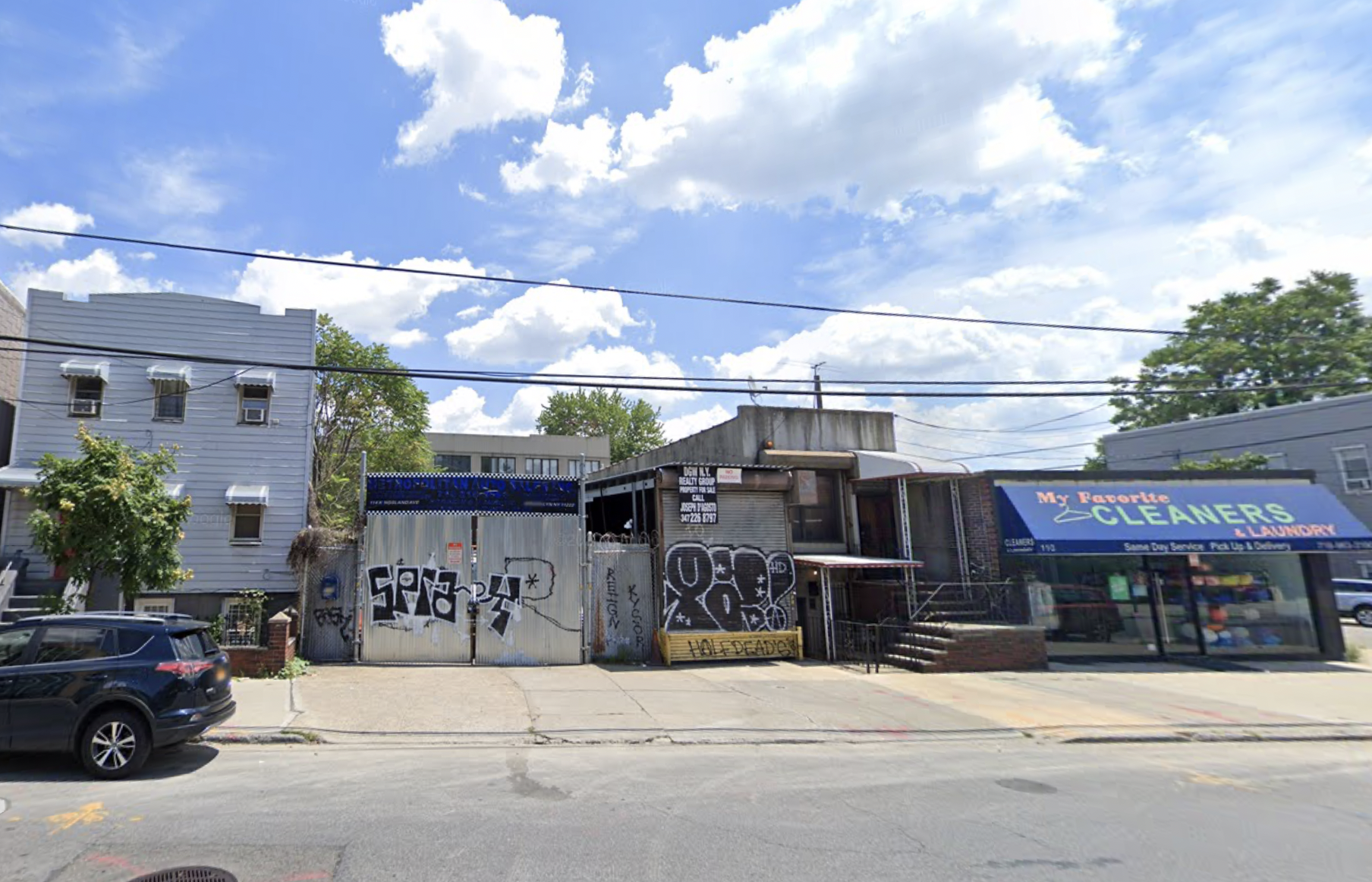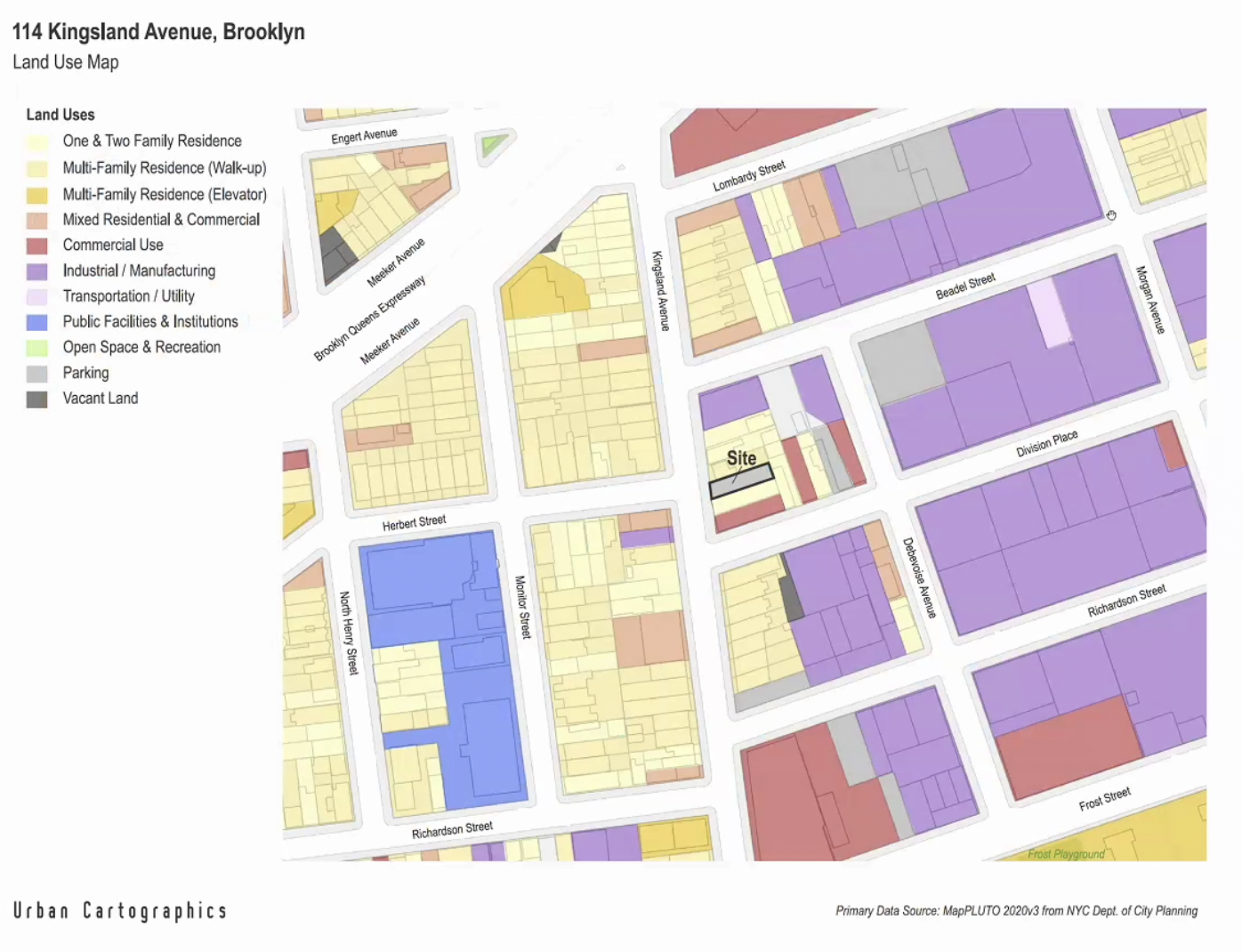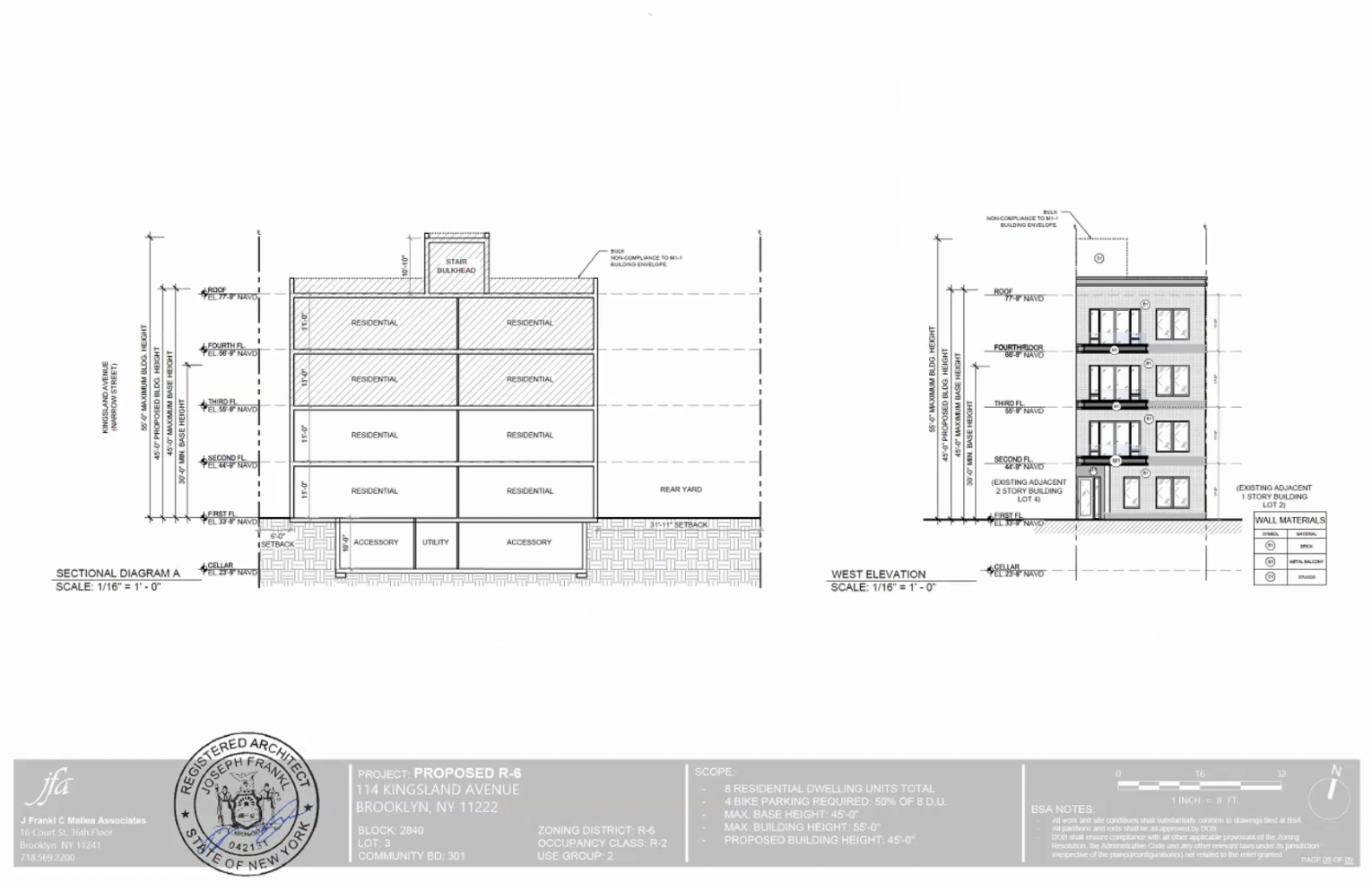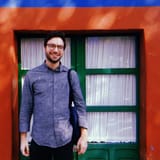Small East Williamsburg Residential Proposal Gets Caught in a Larger Fight Over Land Use


IMAGE
A proposal for a four-story apartment development in East Williamsburg is facing resistance from the local community board over larger concerns about a loss of manufacturing space in Brooklyn.
Solomon Feder is looking to build eight rental units, all one-bedrooms or studios, on an irregularly-shaped 25-foot-by- approximately-95-foot lot at 114 Kingsland Avenue near Herbert Street. The block itself has been residential for over a century, and there are apartment buildings on either side of the lot in question.
114 Kingsland Avenue itself held a residential building until approximately 1965, Elyse Foladare, Feder’s attorney, told Brooklyn Community Board 1’s Land Use Committee on Monday night. But that year, the building burned down in a fire, and since then has been used as a “trucking site.”
But the lot is zoned M1 for manufacturing, like much of the Industrial Business Zone to the east. And while Feder’s team initially considered building commercial or manufacturing space on the site, Foladare said, “there’s a lot of reasons we couldn’t do that.”

“It’s a really really narrow street and it’s on the cross so it would not provide enough room for any loading or deliveries,” she told the committee. As for office space: the current zoning only allows for 1.0 floor-area ratio (likely a single-story building), making it difficult to turn a profit.
So Feder, who bought the site in 2018 for $520,000, is seeking a zoning variance from the city’s Board of Standards and Appeals that would allow him to build a four-story residential building.
But members of CB1’s land use committee, who will issue an advisory vote on the project, weren’t thrilled with the proposal.

“The site was purchased two years ago with fair knowledge of the industrial zoning,” said Willis Elkins. “What does the community get for allowing the property owner to significantly maximize profits on the project?”
Some committee members said they wanted below-market-rate housing to be included in the project, which Foladare said would make the project economically unfeasible. Unlike rezonings permitted under Mayor Bill de Blasio’s Mandatory Inclusionary Housing program, this variance would not allow for greater density to offset the lost rental income.
Others on the committee were hesitant to give up manufacturing-zoned land. Though the city’s manufacturing sector has shrunk dramatically in recent decades, leading to calls that some M-zoned areas be converted to create housing, others have sought to push back against further encroachments on that land.
“What this board sees so frequently is developers or owners who buy a lot that has one zoning with an intention to use it as another zoning,” said Cory Kantin. “So I think what you’re hitting on is sort of a sore spot more generally.
The committee issued an advisory vote calling on Zeder to redesign the project in a way that incorporated some manufacturing or affordable housing component.
Zeder, who will now have to decide whether to revamp the project before formally submitting it for BSA consideration, did not immediately respond to a request for comment from Bklyner.





